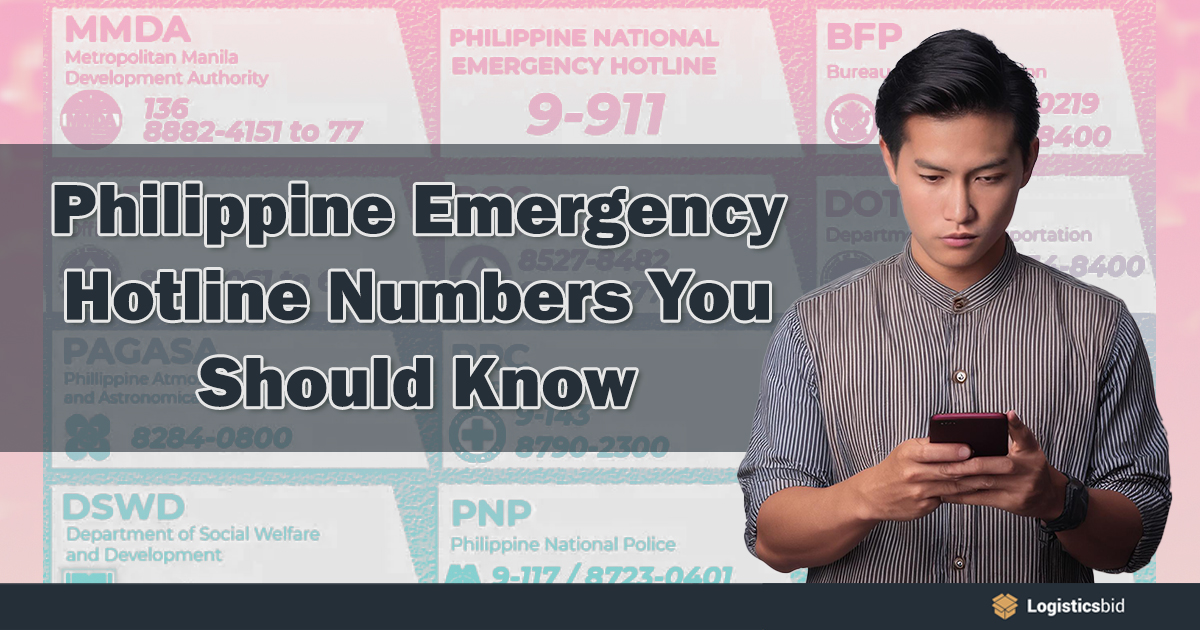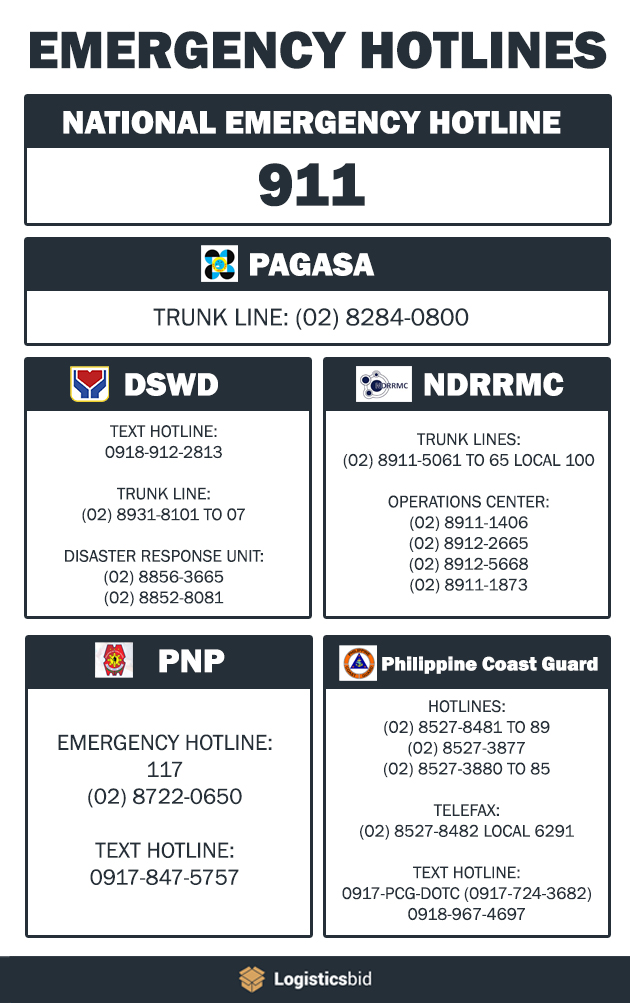
Major Emergency Services
Emergency Response Teams in the Philippines are vital in providing timely assistance during various crises, including natural disasters, accidents, and medical emergencies. These specialized groups, comprising firefighters, paramedics, police officers, and other trained professionals, are equipped to respond swiftly and effectively to emergencies, aiming to save lives and protect property.

National Emergency Hotlines
Several national hotlines are established to ensure rapid response during emergencies.
The Philippine National Emergency Hotline, commonly known as 911, serves as the primary number for emergencies, consolidating various emergency services into one accessible line.
Additionally, the National Disaster Risk Reduction and Management Council (NDRRMC) can be reached at (02) 8911-5061 to 65 local 100 for issues specifically related to disaster response.
Local and Specialized Services
Local emergency services complement national hotlines by offering specialized support.
For instance, the Department of Health (DOH) can be contacted at (02) 8651-7800 or (02) 165-364 for medical emergencies, while the Bureau of Fire Protection (BFP) responds to fire incidents through their hotline number 160.
Moreover, the Metropolitan Manila Development Authority (MMDA) provides assistance for urban emergencies, with a dedicated hotline of 136. They operate various centers that respond to issues such as flooding and rescue operations, further enhancing the efficiency of emergency response in urban areas.
Technological Support in Emergency Response
The advancement of technology has also played a role in emergency services in the Philippines. Mobile applications like iSerbis and Emergency PH allow users to quickly access emergency services through their smartphones, streamlining the process of seeking help during critical situations.
Specialized Philippines Emergency Hotlines
Various specialized Philippine emergency hotlines are established to assist individuals during specific situations, particularly during calamities such as typhoons and other emergencies. It is crucial for citizens to be aware of these contacts for swift and appropriate help
National Disaster Risk Reduction and Management Council (NDRRMC)
The NDRRMC is the primary government agency tasked with disaster preparedness and management. It provides critical updates and resources during emergencies.
Philippine National Emergency Hotline
For general emergencies, the universal number to call in the Philippines is 911.
Department of Social Welfare and Development (DSWD)
The DSWD plays a vital role in disaster response and social welfare services.
Bureau of Fire Protection (BFP)
For fire-related emergencies, contact the BFP.
Philippine Atmospheric, Geophysical and Astronomical Services Administration (PAGASA)
PAGASA is essential for weather-related inquiries, particularly during typhoon season, offering updates on storm signals and warnings.
By knowing these specialized hotlines, individuals can access timely support and resources in times of crisis, helping to ensure safety and well-being during emergencies.
Regional Emergency Numbers
In the Philippines, various regions have their specific emergency numbers to provide immediate assistance during crises, including natural disasters, medical emergencies, and public safety issues. Familiarizing oneself with these numbers can be crucial for timely response and support.
Luzon Emergency Numbers
For residents in Luzon, the following emergency numbers are available:
- Office of Civil Defense – National Capital Region:
(02) 8421-1918
(02) 8913-2786
- NDRRMC Region IV-B:
(043) 723-4248
- NDRRMC – Cordillera Administrative Region:
(074) 304-2256
(074) 619-0986
(074) 444-5298
(074) 619-0986
Visayas and Mindanao Emergency Numbers
Emergency contact numbers in the Visayas and Mindanao regions also vary by locality. Each province may have specific numbers operated by local government units or non-government organizations. For example, in Central Visayas, the Bureau of Fire Protection (BFP) can be reached at (032) 254-8385.
How to Report Emergencies
In the Philippines, effective communication is crucial for reporting emergencies and ensuring timely response. Citizens are encouraged to familiarize themselves with various emergency hotline numbers to report incidents efficiently.
Steps for Reporting Emergencies
When contacting emergency services, it is essential to provide clear and relevant information to facilitate a swift response.
Importance of Timely Reporting
Timely reporting of emergencies can significantly reduce response times and potentially save lives. The effectiveness of emergency services often hinges on the quality of information received at the onset of an incident. Therefore, citizens are urged to prioritize clarity and accuracy when making reports.
By understanding how to report emergencies effectively, individuals contribute to a safer community and ensure that help arrives promptly when it is needed most.
Public Awareness and Outreach
Public awareness and outreach initiatives are crucial for enhancing community engagement and ensuring effective disaster preparedness in the Philippines. These efforts aim to raise awareness about emergency hotline numbers and protocols, improve local capacities, and foster collective action among community members.
SEE ALSO:
